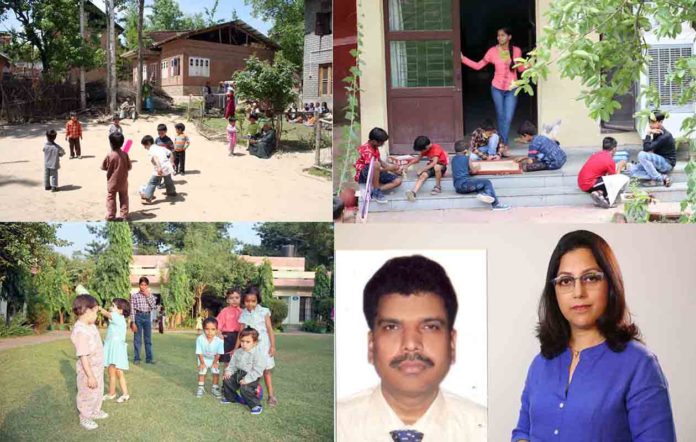Delhi News, October 9, 2020 : Experts of SOS Children’s Villages of India have highlighted the need to strengthen the emotional wellbeing of children and adolescents in the stressful times of the ongoing pandemic which may leave a lasting imprint on their lives. Emotional wellbeing is an important part of mental health, but it is compromised in their formative years by factors related to the immediate environment in which the children are brought up, their family or issues with their own personality. On the eve of World Mental Health Day, SOS Children’s Villages has introduced an Emotional Aid programme for children called EmoAid in association with renowned parenting and emotional wellbeing coach Dr. Shilpa Gupta.
Said Mr Sumanta Kar, Senior Deputy National Director, SOS Children’s Villages of India: “We have close to 7,000 children living in our 32 Villages across the country. We directly outreach more than 17,000 children through Family Strengthening Programme. Emotional well-being of children under our care is an absolute priority for us. For this, we have developed several modules like for resilience building, positive youth development and a new child entry programme, since children coming to our villages have already undergone some form of trauma. There is also a programme for emotional wellbeing of SOS Mothers, as mental health of care givers is equally important. Now, in association with Dr. Shilpa Gupta, we have introduced an online programme called EmoAid to provide Emotional First Aid to children and SOS Mothers. It involves online workshops to learn practical tools and techniques for enhancing one’s emotional health and prevent the escalation of emotional concerns. The programme will build the emotional capacity of our children.”
Said Dr. Shilpa Gupta, Associate Director of Centre for Child and Adolescent Wellbeing (CCAW) who is associated with SOS Children’s Villages as a counsellor and advisor: “These are challenging times for children and adolescents as ‘Coronaphobia’ has gripped the society, leading to increased health anxiety. School routines have got disturbed which play an important role in helping children structure their behavior. The pandemic has caused economic distress to large number of families, which may result in increased emotional or physical abuse towards children. Many children are worried about their own health and of their loved ones.”
Mr Sumanta Kar added: “The National Mental Health Survey conducted in 2016 found the prevalence of
mental disorders to be 7.3% among children aged 13–17 years, a figure increasing every year. The pandemic has made mental health conditions worse. According to a study in China, onset of Covid-19 has led to a 74% drop in overall emotional well-being. People are showing more negative emotions like anxiety, depression, and indignation, and less positive ones. The situation would be similar in India.”
Added Dr Shilpa Gupta: “Children experience many emotions throughout the day like sadness, loneliness, anger, irritation, stress, frustration, being overwhelmed, etc. EmoAid trains them to deal with a wide range of emotional difficulties that they experience on daily basis. It has several scientific tools and techniques that empower children to regulate their emotions better and make them self-reliant in handling their own emotions. The early results have been very encouraging.”
Explaining the factors during Covid-19 that are having a negative effect on emotional wellbeing of children, Dr Shilpa Gupta said: “Environmental factors relate to issues like children being homebound, closure of schools leading to less interaction with one’s peers, limited access to learning, and parental unemployment or substance abuse. Family factors include the inability of parents to explain the pandemic situation, not knowing how to keep children occupied in a healthy way, and watching or experiencing domestic violence, which increases anxiety, anger and frustration among children. Those with poor school performance, learning difficulties or pre-existing mental health issues also have compromised emotional wellbeing. Children with emotional disturbances may show hyperactivity, short attention span, impulsiveness, aggression, self-injurious behavior, not interacting socially with others, excessive fear or anxiety, immaturity, learning difficulties or abnormal mood swings.”
She added: “All these findings draw our attention to immediate work on strengthening emotional wellbeing of children which can lead to increased coping ability, self-esteem, and an increase in positive emotions including hope and resilience. It is important for parents or care givers to understand the emotional needs of vulnerable children, listen to them, comfort them and reassure them.”


















































